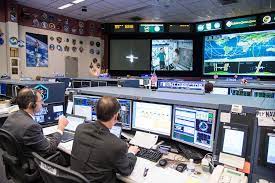
When people think about air travel, most think that when they fly they are in the hands of their pilot. While this is true, a flight crew cannot fly without the help of a team of people on the ground.
An aircraft dispatcher makes airline operations work and ensures that both pilots and their passengers are able to travel safely to their destination. Flight plans, safety guidelines, and weather patterns are all part of the work performed by a dispatcher, but many wonder what exactly a flight dispatcher does while on the job.
When people think about air travel, most think that when they fly they are in the hands of their pilot. While this is true, a flight crew cannot fly without the help of a team of people on the ground. An aircraft dispatcher makes airline operations work and ensures that both pilots and their passengers are able to travel safely to their destination. Flight plans, safety guidelines, and weather patterns are all part of the work performed by a dispatcher, but many wonder what exactly a flight dispatcher does while on the job. If you are considering a field in aviation, then read on to see if a dispatcher is the right job for you.
Almost every shift begins with a thorough check of the day’s weather and the remainder of the shift includes intermittent checks to see if the weather has changed at all. An aircraft dispatcher checks on the visibility at their departure airport as well as the conditions at the destination airport and possible alternate airports as well. An extensive knowledge of weather and forecasting is required in order to provide pilots with accurate information so that all flights make it to their destination safely and on time.
While most airports have automated flight plans, an aircraft dispatcher is still required to override certain flight plan defaults if needed, and monitor all flights and suggest alternative actions, should the need arise. They need to be able to utilize complex computer systems that select the correct altitudes for flights according to flight calculations. Most flight dispatchers have as much – if not more – knowledge than pilots, allowing them to come up with flight plans that are the best choice for weather conditions, mechanical issues, or other problems that may arise.
The field of aviation cannot operate without good communication between the ground and the airplanes in the air. A flight dispatcher spends a good amount of time during a shift communicating back and forth between several pilots on the flights they are monitoring. Dispatchers have to tell their pilots navigation information and relay flight plan guidelines in order to ensure safe travels. Operational decisions often come straight from a dispatcher who has to let their pilots know of any safety hazards or changes that can come up without warning.

The reality of the job is that complete concentration is required throughout very long shifts, with weather is poor or airplanes have mechanical issues. Without full attention, small issues can become big problems for a flight. Working behind the scenes to keep planes in the air and on schedule, the aircraft dispatcher, also considered a form of “pilot on the ground”, is one of the unsung heroes of their aviation world. The next time you are on a flight, remember that there is more than one person directing your place to its destination and ensuring that you get there on time.

